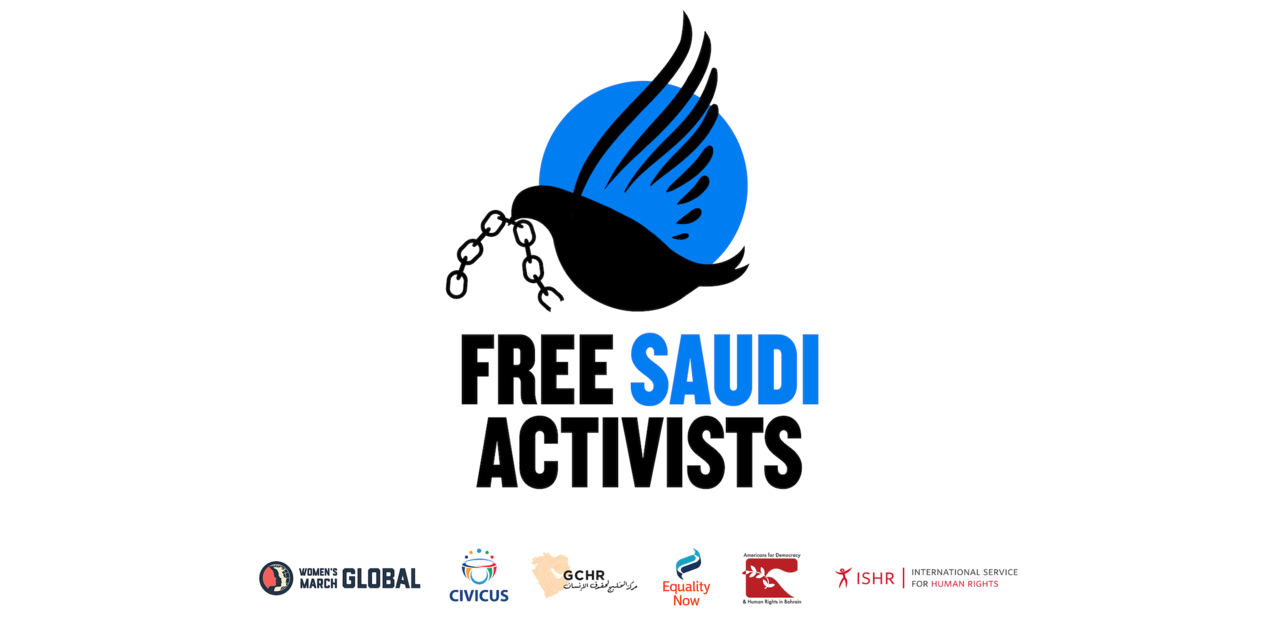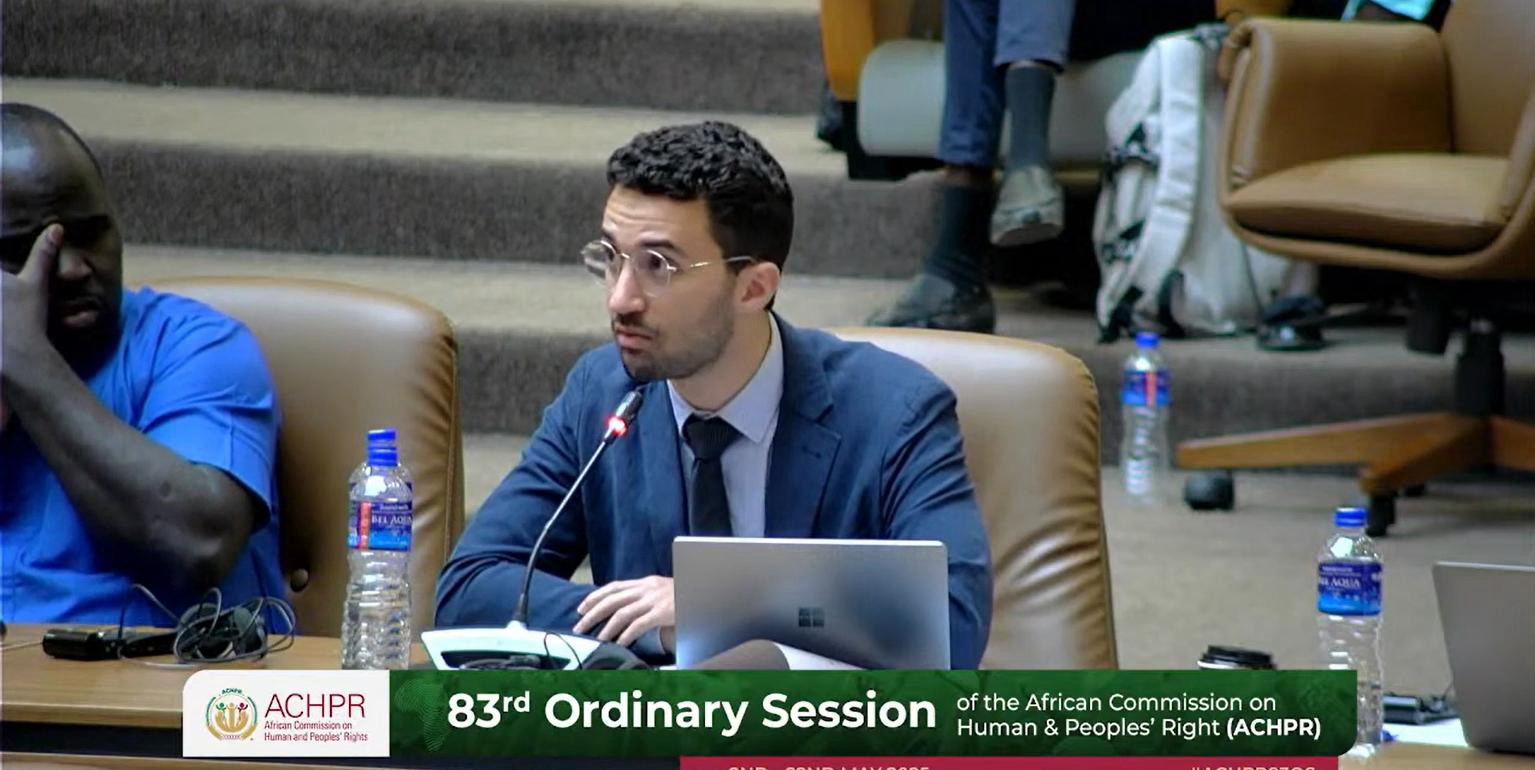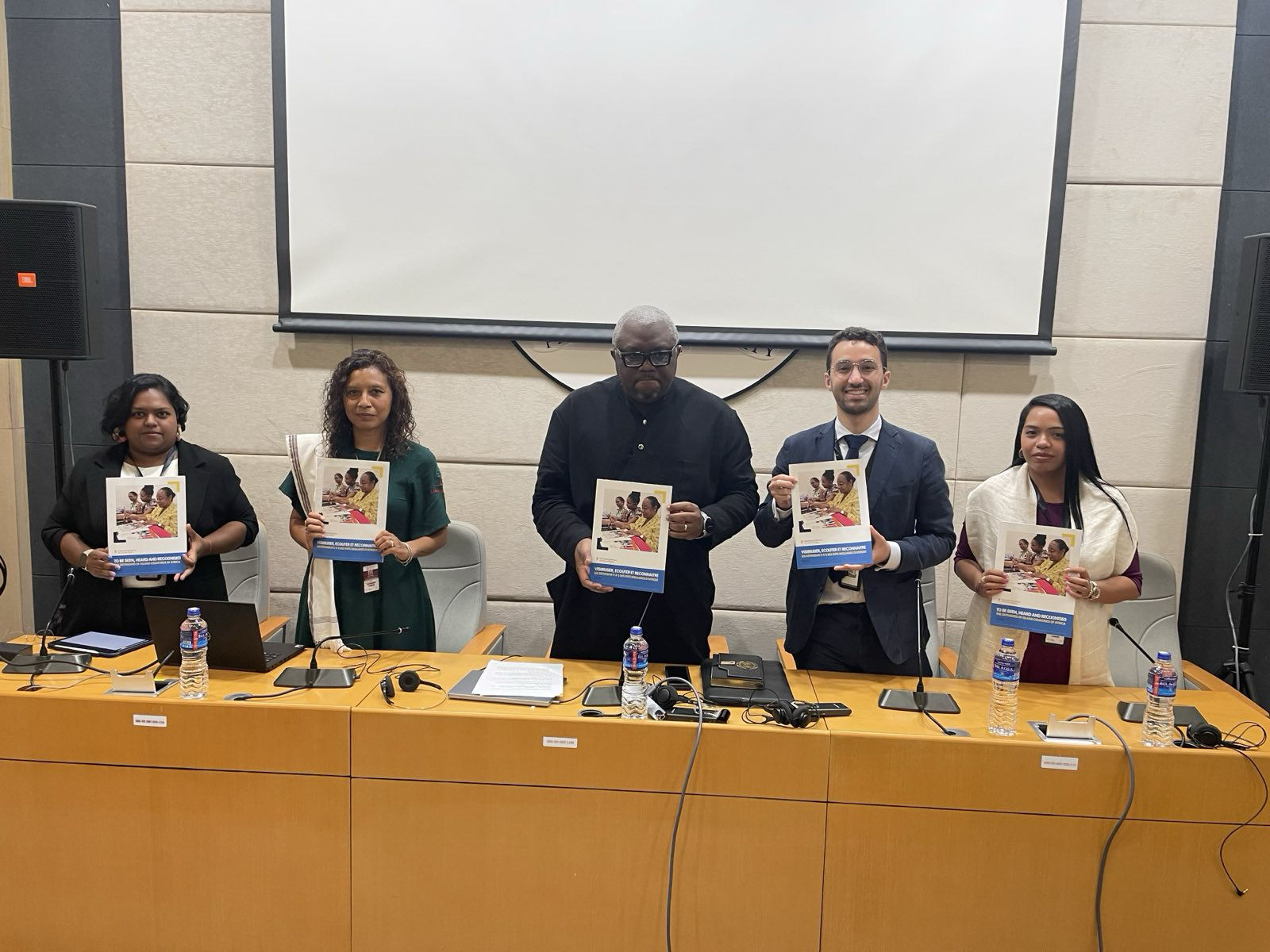The States voiced their deep regret for the “the continued detention of at least five women’s human rights defenders, arrested in 2018” and reiterated their calls for “the release of all political detainees”.
“The immediate and unconditional release of the women’s rights activists and human rights defenders would be a litmus test of the Saudi government’s political will to improve the human rights situation”, said Yahya Assiri, Director of ALQST for Human Rights and Salma El Hosseiny, ISHR’s Human Rights Council Programme Manager.
In March 2019, the States had called for the release of all those detained for exercising their fundamental freedoms including ten women human rights defenders. Five of them have been provisionally released but are still facing charges. Loujain Al-Hathloul, Nouf Abdelaziz, Samar Badawi, Nassima Al-Sadah, Mohammed Al-Bajadi, and Miyaa Al-Zahrani remain in detention.
During her oral update to the Council on 14 September, the UN High Commissioner for Human Rights, Michelle Bachelet, expressed her deep concern about the continued arbitrary detention of Saudi women human rights defenders (WHRDs) and urged their immediate release. Saudi WHRDs have been campaigning for women to be treated as equals to men, including having the right to drive a car and travel abroad.[1]
The States also raised concerns over the use of counter-terrorism measures against those exercising their rights peacefully as well as violations against detainees including torture, arbitrary detention, enforced disappearances, denial of access to medical treatment and contact with their families.
In June 2019, the UN Special Rapporteur on extrajudicial and summary executions Dr. Agnes Callamard presented to the Council her investigation which found the State of Saudi Arabia responsible for the premeditated execution of Saudi journalist Jamal Khashoggi, and concluded that “those who ordered the execution not only walk free but have barely been touched by the investigation and the trial”. The States reiterated today in the joint statement their calls for “transparency and holding all those responsible accountable”.
While the States also welcome some positive measures taken by Saudi Arabia regarding flogging, death penalty and women’s rights, 32 NGOs had highlighted in a joint letter how the measures fall short of genuine human rights improvements. On 25 September, ISHR delivered a joint statement at the Council, on behalf of the Free Saudi Activists Coalition urging the Council to continue its scrutiny and to establish a monitoring and reporting mechanism over the situation.
The States reiterated that Council members “must expect public scrutiny of their human rights record”. Saudi Arabia is running for Human Rights Council elections scheduled for October 2020. ISHR reiterates its calls on Saudi Arabia to implement recommendations jointly developed with partners including on: civic space and human rights defenders, male guardianship system, Yemen, death penalty, accountability for Jamal Khashoggi, migrant workers’ rights, and due process guarantees.
During the same debate today at the Council, the European Union also expressed concern over the continued detention of Saudi WHRDs including Loujain Al-Hathloul, and called for accountability for Jamal Khashoggi.
This is the third joint statement delivered by States at the UN Human Rights Council, following a statement led by Iceland in March 2019, and Australia in September 2019.
*Read here the joint statement on behalf of: Australia, Belgium, Bulgaria, Canada, Costa Rica, Croatia, Czech Republic, Denmark, Estonia, Finland, France, Germany, Iceland, Ireland, Italy, Latvia, Liechtenstein, Lithuania, Luxembourg, Marshall Islands, Monaco, Montenegro, Netherlands, New Zealand, Norway, Peru, Portugal, Slovenia, Slovakia, Spain, Sweden, Switzerland, the United Kingdom.
Photo: Free Saudi Activists Coalition
[1] Saudi Arabia published amendments on August 2nd 2019 to allow women to obtain passports and travel abroad without permission of their male guardians, grant women the right to register marriages, divorces, births and deaths, to obtain family records and benefit from new protections against employment discrimination. However, Saudi women still must obtain a male guardian’s approval to get married or be released from prison or shelters where they have sought protection from domestic abuse or violence. See more details: Amnesty International, Human Rights Watch.




